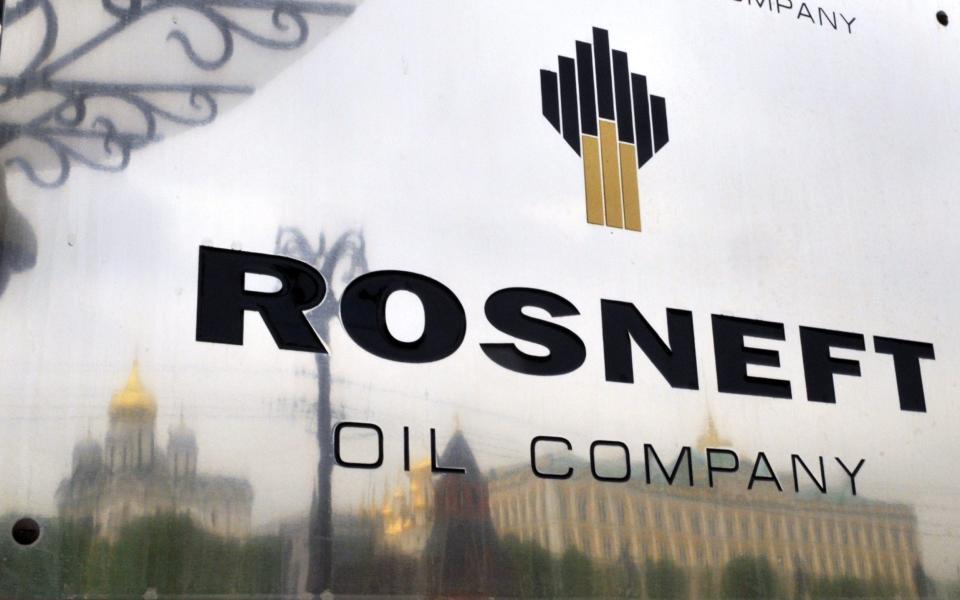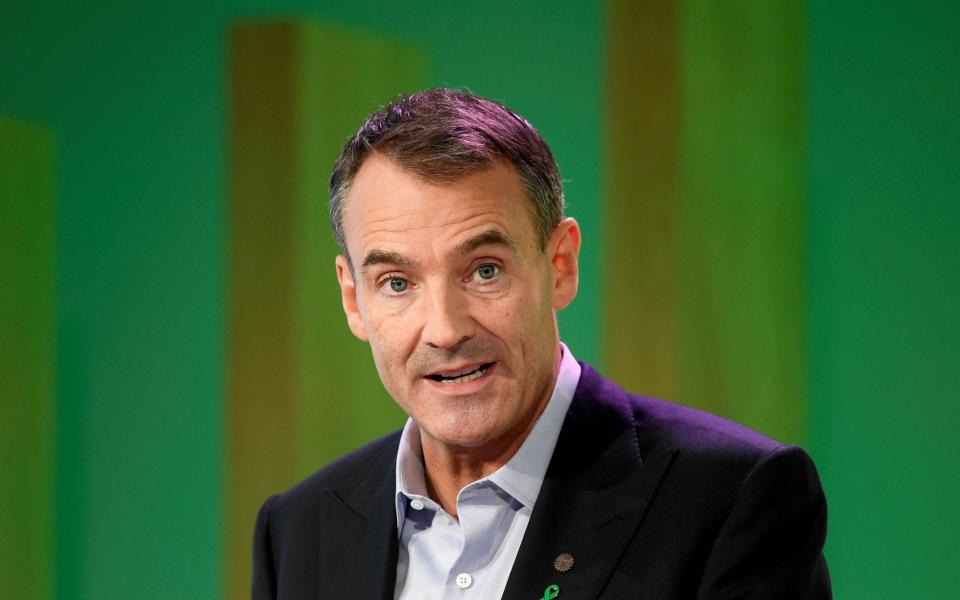BP urged to cut ties with Russian oil giant as Whitehall voices ‘concern’

BP was summoned by the Business Secretary to explain its multibillion-pound investment in Rosneft, the Russian state energy company fuelling the trucks and tanks rolling into Ukraine.
BP’s leaders met Kwasi Kwarteng via video link and were told of the uneasiness their ties to Vladimir Putin are now causing in Whitehall.
Bernard Looney, BP’s chief executive, faces mounting pressure to offload the 20pc Rosneft shareholding, which dates back to a deal a decade ago and is valued at £5bn.
A Whitehall source said: “BP left the meeting with no doubt about the strength of the Business Secretary's concern about their commercial interests in Russia.”
BP’s chief executive and his predecessor Bob Dudley both sit on Rosneft's board under a deal dating back to 2012. Mr Looney is also a trustee of the Russian Geographical Society alongside President Putrin himself.
On Friday Ed Davey, the Liberal Democrat leader, wrote to the Prime Minister urging him to sanction Rosneft and put pressure on BP to divest its stake.
He wrote: “It is unacceptable for a flagship British company like BP to hold such a large stake in a Russian state-backed company.”
Rosneft has not been targeted by UK sanctions but chief executive Igor Sechin – a close ally of President Putin – is on the US sanctions list.
Britain and the EU will freeze foreign assets belonging to President Putin and his veteran foreign minister, in an escalation of their sanctions against the Kremlin’s leadership.
In a call with Nato leaders, Boris Johnson revealed the UK planned to imminently introduce sanctions against President Vladimir Putin and his foreign minister Sergey Lavrov.
The largely symbolic move will aim to freeze any foreign assets but is thought unlikely to include a travel ban in order to keep open diplomatic channels.
Foreign Secretary Liz Truss told MPs that officials are having to make sure their sanctions against oligarchs are “legally watertight” to prevent them being challenged by their lawyers.
A source said they had to “cross all the ts and dot the is” but none of those so far named had challenged them.
Labour MP Ben Bradshaw, one of those briefed, said: “She was talking about why we weren’t going faster on sanctioning some of these people.
“She explained that they had to make certain their actions were legally watertight, because of the litigiousness of the London law firms representing these men.”
Ben Keith, a barrister specialising in international crime at 5 St Andrews Hill, disputed suggestions that City law firms would have any ability to prevent the UK Government from imposing sanctions on Russian oligarchs.

He said: “In my opinion, this could only be sabre rattling from lawyers acting in the interests of their Russian clients, because it is difficult to see how they can make any difference legally to the imposition of sanctions.
“If later on they want to appeal against them or to vary the sanctions then there are mechanisms to do that. But I cannot understand how letters from law firms could be delaying the imposition of sanctions by the Foreign Office.
John Heathershaw, a professor of international relations at the University of Exeter, said: “There is no reason law firms should be able to hold up sanctions in advance.”
No Swift action
Moves to restrict economic ties with Russia continued around the world, amid debate among leaders over whether to cut off access to the Swift international banking system.
The Prime Minister urged leaders to take immediate action to remove Russia from the Swift payment system to inflict maximum pain on President Putin and his regime.
“Agnostic” Joe Biden is resisting UK calls to switch off the Swift international payment system for Russia after Vladimir Putin’s invasion of Ukraine, according to Government sources.
The US president’s refusal threatens to delay what Boris Johnson and Liz Truss believe would be one of the most effective ways of sanctioning the Russian leader.
There is said to be frustration within the Government as it leaves the UK apparently isolated with Germany, France and Italy resisting a move that would disrupt half of Russia’s international trade.
Ukraine has warned the West would have “blood on its hands” if it does not block Russia’s access. Yesterday its foreign minister, Dmytro Kuleba, made a fresh appeal to US Secretary of State Antony Blinken to “use all US influence on some hesitant European countries to ban Russia from Swift”.
Swift is the world’s primary platform for cross-border financial transactions and is used by more than 11,000 banks and financial institutions as a secure messaging system to facilitate trillions of dollars worth of transactions between businesses.
Blocking it would damage Russia’s economy by making money transfers far more difficult and by cutting off transactions including overseas profits from oil and gas production, which account for more than 40 per cent of the country’s revenue.
Germany and Italy are said to fear Mr Putin could retaliate by cutting off Russian gas supplies to mainland Europe while there are also concerns banning them could push Russia closer to China by joining its payments system.
Germany’s finance minister Christian Lindner said yesterday that it was open to removing Russian from Swift but must calculate the consequences for its economy first.
Donald Tusk, the former president of the European Council who negotiated Brexit, said Germany and Italy had “disgraced themselves” by blocking a ban on Russia’s access to Swift.
Asset freezes against all Russian financial institutions and sweeping additions to existing financial curbs are not expected to be enacted by MPs until Tuesday at the earliest.

 Yahoo Finance
Yahoo Finance 